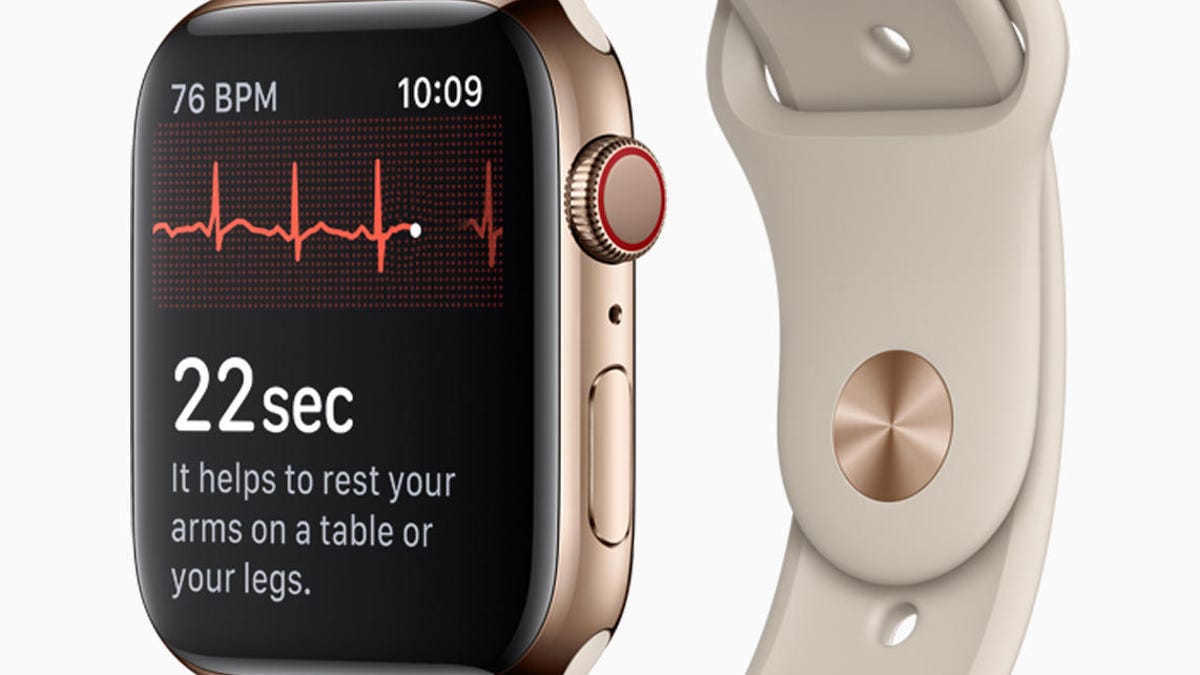Johnson and Johnson, Apple team up on new iOS-based heart study
Using the iPhone and Apple Watch to help track hearts 65 years and older.

The Apple Watch Series 4 (shown here) and Series 5 put a one-lead ECG on your wrist.
Johnson and Johnson's pharmaceuticals brand Janssen wants to improve heart health, and for its latest study it's turning to the iPhone and the Apple Watch to help gain a better understanding of the vital organ. In an announcement Tuesday, the health care giant announced a partnership with Apple on a new Heartline study designed to get more information on heart health among people age 65 and older.
The study's goal, according to the announcement's press release, is to "explore if the Heartline Study app on iPhone and heart health features on Apple Watch can improve health outcomes, including reducing the risk of stroke, with earlier detection of atrial fibrillation (AFib)."
The company cites a stat from the US Centers for Disease Control and Prevention that says that AFib, "the most common sustained cardiac arrhythmia, results in 158,000 deaths and 454,000 hospitalizations each year." It's hoping that by using the iPhone app and Apple Watch the study will allow for insights from people nationwide as opposed to having to set up individual clinical trial sites.
Johnson and Johnson's Heartline study is looking to learn more about the human heart.
Those interested will need to have an iPhone 6S or later, be 65 or older, be a US resident, have "Original (traditional) Medicare" and agree to provide access to Medicare data.
An Apple Watch, which can monitor for irregular heartbeat through the electrocardiogram (ECG) feature on the Series 4 and Series 5 models, isn't required, though the study is looking for participants who do use one and may ask others who partake to get one.
Johnson and Johnson won't provide Apple Watches to participants. Instead, it notes on its website that it may ask participants to "purchase a watch, or get one on loan for the duration of the study and return it when your participation in the study ends."
The study will run for three years, with "two years of active engagement" in which those who participate will receive "heart health education, wellness tips, surveys, and questionnaires across multiple topics related to overall heart health in the app each week."
After the two years are up, there will be one year of "additional data collection."
Those who participate can "earn compensation worth $150 or more over two years, depending on which study activities you are asked to complete" and which devices you have.
The Johnson and Johnson study is just the latest collaboration between Apple and a medical researcher. Last March the iPhone maker released the results on a heart study done in partnership with Stanford and in September opened up three additional studies through its Apple Research app.

